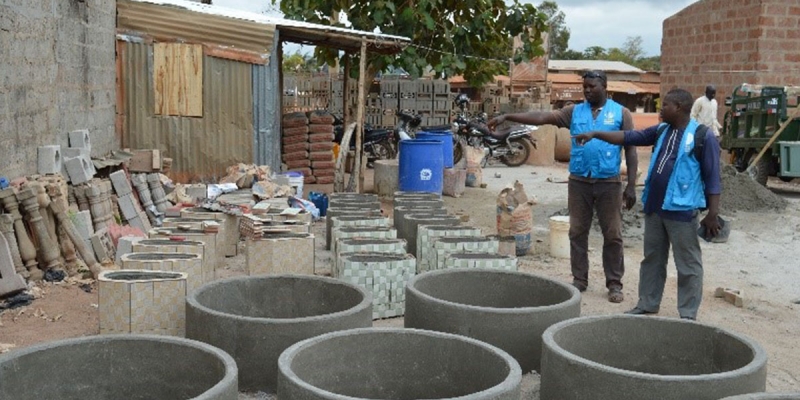Funded by the United States Agency for International Development (USAID) since 2014, the Sanitation Service Delivery (SSD) program trains and encourages private sector actors (masons, plumbers, building technicians, etc.) to provide commercial delivery of affordable, quality sanitation products and services to low-income households in Benin and Côte d'Ivoire. Implemented by Population Services International (PSI), the project trained and operationalized 34 micro-entrepreneurs to build sanitation facilities in 19 communes in Benin under the "WC Mimin" label. These include double-pit latrines for alternative use, improved single-pit latrines and defecation pots.To date, at least 19,000 sanitation facilities have been built by micro-entrepreneurs in Benin, compared to more than 8,500 in Côte d'Ivoire under the "Sani Plus" brand.
After an initial phase that lasted from 2014 to 2019, the project obtained a one-year extension from the donor. Before the new closing date of September 2020, the project team is multiplying its actions in order to make the micro-entrepreneurs more and more autonomous. These include encouraging micro-entrepreneurs to recruit their own sales force, approaching households directly, developing partnerships to increase the number of sales outlets and boosting their turnover. The long-term vision is to see these micro-entrepreneurs in sanitation continue the provision of sanitation products and services to households once the project is completed.
In Benin, the micro-entrepreneurs have formed an association for greater efficiency. They created the UNION NATIONALE DES ENTREPRENEURS D'ASSAINISSEMENT MIMIN DU BENIN (UNEAM) with the mission to ensure the supply of "WC Mimin" sanitation products. The first meeting of the members of this association was held during this first quarter. During the meeting, it was a question of defining a set of priority actions to be carried out to make this association more operational. UNEAM therefore wants to carry out advocacy in the cities where the SSD project carries out its activities in order to make itself known to the municipal authorities. The members of this association have also thought about mechanisms to mobilize funding from credit institutions in order to increase their activities. In Benin, according to the 2018 national health survey, only 22% of the urban population uses basic sanitation facilities, while 26% of Beninese use shared toilets and 38% practice open defecation. Universal access to basic sanitation is not yet achieved, largely due to the lack of affordable, high quality and accessible toilets for consumers.

 English
English  Français
Français 
